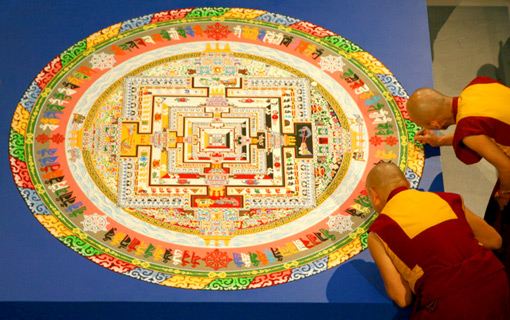Have you ever thought about the absurdity of life? We are born, we work, (if we are lucky) we love, and we die… it’s hard to deny that it’s all a little absurd. Given my desire to impose some kind of “bigger meaning” to it all, the idea of “owning the Absurd” (on the Camus episode of The Partially Examined Life) made me wonder. Let’s start with Camus’ Myth of Sisyphus, the “absurd hero”, and then see what you think of “Absurdism” that followed (yes, seriously, there is such an ism).
The myth goes something like this: the gods condemned Sisyphus to roll a rock up a mountain and watch it roll down again, and to repeat the process for all eternity. It’s only when Sisyphus stops resenting his fate and instead learns to embrace it that he finds happiness.
Camus solution to the irreconcilable absurdity of life is (as we’d say today) to “own” it. He concludes that despite the terrible life of pushing rocks up a hill “one must imagine Sisyphus happy.”
Thinking about the world today I wonder: Is the life of your typical lawyer, banker, or average happy robot, so different to Sisyphus? Are the lives of unhappy robots any different, or are they simply frustrated Sisyphus’ pushing the rocks with frowns on their foreheads? Is the conclusion to be a happy robot that knows he or she is a happy robot? Is that what Camus is saying? Maybe. Let’s leave my developing thoughts on happy and unhappy robots for another day.
“Absurdism” is the result of Camus’ book. Absurdism (—according to Wikipedia, adding an extra dash of absurdity to the table) refers to conflict between the human tendency to search for meaning in life, and the ultimate (humanly) impossibility of really finding it.
In our vast universe, mulit-verses, or whatever is the biggest representation of the infinite you can think of, how can humans ever find a sense of certainty about the meaning of anything? How can the human mind exist in conjunction with the universe? It is absurd!
But it seems to me that there’s something beautiful in the absurdity — something extremely meaningful in the meaningless of existence.
The story makes me think of the Buddhist meditative tradition of Sand Mandalas in Tibet, where over a period of days or weeks monks carefully lay grains of sand to create an incredibly detailed and beautiful picture, which once complete is very soon destroyed “in order to release and disseminate the deity’s blessings into the world to benefit all sentient beings.”[2]

At the end of a Mandala, or at the end of one’s life, I suppose we are left with one magical thing: the process. The process of life comes only alongside the process of death.
I think the lesson I have learned from Sisyphus, Camus, and all this “to suicide or not suicide, that is the question” talk… is that: (1) it’s about the process not the result; and (2) you may as well have a sense of humour about it.
If the process of pushing rocks up a hill and watching them roll back down again is what we live for, why not embrace the absurdity and have a little fun with it?
References:
[1] http://www.namgyal.org/mandalas/
[2] Partially Examined Life – 15 min exert on YouTube: http://www.youtube.com/watch?v=p6zaM5-Cnnc
[3] Myth of Sisyphus http://www.nyu.edu/classes/keefer/hell/camus.html